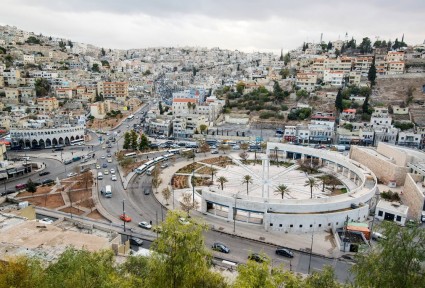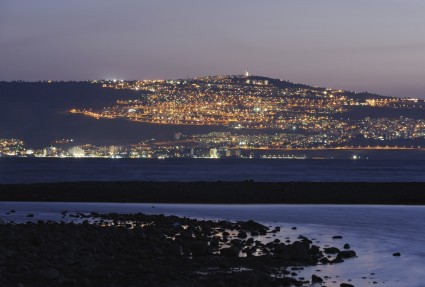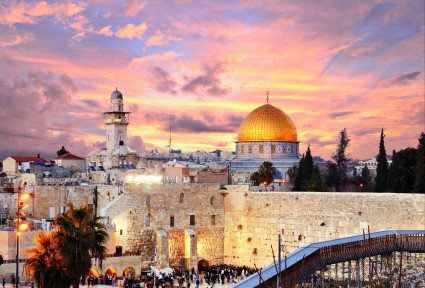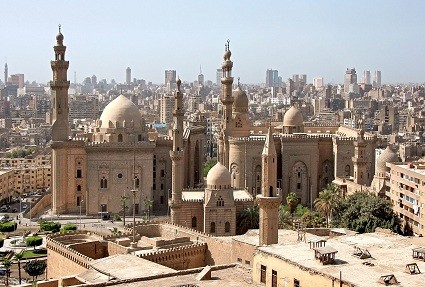Booking for : Jordan & Israel With Egypt Fly-N-Stay
Jordan & Israel With Egypt Fly-N-Stay
Duration : 10 Days, 9 Nights
Tour Details
Egypt, officially the Arab Republic of Egypt, is a country in the northeast corner of Africa, whose territory in the Sinai Peninsula extends beyond the continental boundary with Asia, as traditionally defined. Egypt is bordered by the Gaza Strip and Israel to the northeast, the Gulf of Aqaba and the Red Sea to the east, Sudan to the south, Libya to the west, and the Mediterranean Sea to the north. Across the Gulf of Aqaba lies Jordan, across the Red Sea lies Saudi Arabia, and across the Mediterranean lie Greece, Turkey and Cyprus, although none share a land border with Egypt.
Egypt has one of the longest histories of any country, tracing its heritage back to the 6th–4th millennia BCE. Considered a cradle of civilisation, Ancient Egypt saw some of the earliest developments of writing, agriculture, urbanisation, organised religion and central government. Iconic monuments such as the Giza Necropolis and its Great Sphinx, as well the ruins of Memphis, Thebes, Karnak, and the Valley of the Kings, reflect this legacy and remain a significant focus of scientific and popular interest. Egypt’s long and rich cultural heritage is an integral part of its national identity, which has endured, and often assimilated, various foreign influences, including Greek, Persian, Roman, Arab, Ottoman Turkish, and Nubian. Egypt was an early and important centre of Christianity, but was largely Islamised in the seventh century and remains a predominantly Muslim country, albeit with a significant Christian minority.
From the 16th to the beginning of the 20th century, Egypt was ruled by foreign imperial powers: The Ottoman Empire and the British Empire. Modern Egypt dates back to 1922, when it gained nominal independence from the British Empire as a monarchy. However, British military occupation of Egypt continued, and many Egyptians believed that the monarchy was an instrument of British colonialism. Following the 1952 revolution, Egypt expelled British soldiers and bureaucrats and ended British occupation, nationalized the British-held Suez Canal, exiled King Farouk and his family, and declared itself a republic. In 1958 it merged with Syria to form the United Arab Republic, which dissolved in 1961. Throughout the second half of the 20th century, Egypt endured social and religious strife and political instability, fighting several armed conflicts with Israel in 1948, 1956, 1967 and 1973, and occupying the Gaza Strip intermittently until 1967. In 1978, Egypt signed the Camp David Accords, officially withdrawing from the Gaza Strip and recognising Israel. The country continues to face challenges, from political unrest, including the recent 2011 revolution and its aftermath, to terrorism and economic underdevelopment. Egypt’s current government is a semi-presidential republic headed by President Abdel Fattah el-Sisi, which has been described by a number of watchdogs as authoritarian.
Why you choose this package!
- It’s so darn tasty!
- It’s undeniably gorgeous
- One word: CULTURE
- It’s easy to get around
- The shopping is phenomenal
- Europeans celebrate EVERYTHING

Day 1,Arrival at Amman
Meal Included
Dinner

Day 2, Amman
Meal Included
BreakfastDinner

Day 3, Amman-Tiberias
Meal Included
BreakfastDinner

Day 4,Tiberias
Meal Included
BreakfastDinner

Day 5,Tiberias-Haifa-Jerusalem
Meal Included
BreakfastDinner

Day 6, Jerusalem
Meal Included
BreakfastDinner

Day 7,Jerusalem-Taba-St. Catherine
Meal Included
BreakfastDinner

Day 8, St. Catherine- Cairo
Meal Included
BreakfastDinner

Day 9,Cairo
Meal Included
BreakfastDinner

Day 10, Departure from Cairo
Meal Included
Breakfast
Inclusions
- Roundtrip Economy class airfare with taxes.
- 02 Nights accommodation in Amman.
- 02 Nights accommodation in Tiberias.
- 02 Nights accommodation in Jerusalem.
- 01 Night accommodation in Saint Catherine.
- 02 Nights accommodation in Cairo.
- Daily All Meals at the hotel.
- Visa Fees.
- Travel Insurance.
- All sightseeing as per the itinerary.
- All entrance fees as per the itinerary.
- English speaking Guide for the entire tour.
- All the transfers in AC Car/Van/Coach.
Exclusions
- Any Meals other than specified in inclusions.
- Personal expenses such as tips, porterage, telephone calls, rooms service, etc.
- Surcharge will be applicable on particular events, festival, exhibition & fairs.
- Any security deposit asked by the hotel during check in.
- Travel Insurance.
- Visa Charges.
- GST extra.
